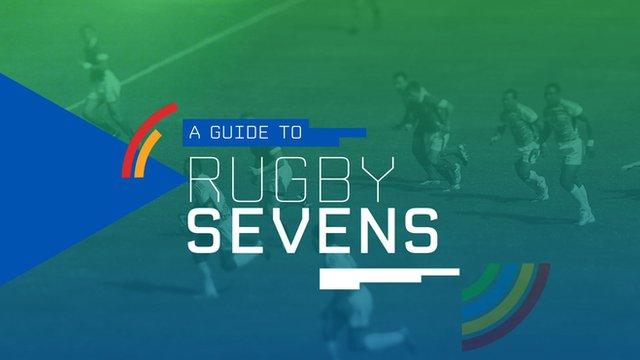Glasgow 2014: Cheat sheet for Commonwealth rugby sevens
- Published
.jpg)
The sport in brief
It's a small-sided version of the 15-man game with - you guessed it - seven players per team. There are 16 teams, split into four groups. Matches are split into two seven-minute halves with the scoring system identical to XVs (tries - five points, penalty/drop goal - three, conversion - two). The sport will make its Olympic debut in Rio in 2016.
Glasgow 2014: Guide to rugby sevens at the Commonwealth Games
Home Nations' prospects
Despite a relatively late change in head coach - Simon Amor only took over in September 2013, external - England, World Championship runners-up in 2013, are strong medal contenders. Wales were world champions in 2009 but have struggled this season.
Scotland reached an IRB Sevens World Series semi-final for the first time since 2009 this season but the chances of rugby coming home (see pub bore) is minimal.
Commonwealth class acts
New Zealand have won all four Commonwealth gold medals, never losing a game. They clinched their 12th Sevens World Series title in 15 attempts in May - coach Sir Gordon Tietjens has presided over all those victories and was knighted last September.
Australia and South Africa are good bets for a medal, while Samoa could benefit from the absence of Pacific Island powerhouses Fiji, who missed the qualifying period because the country was suspended from the Commonwealth.
Pub bore
Scotland is the birthplace of rugby sevens. The first tournament in 1883 was the brainchild of a butcher called Ned Haig and was organised to boost the coffers of Melrose RFC. The Rugby World Cup Sevens winners' trophy is named the Melrose Cup.
Best medal results by the Home Nations
England: One silver (2006 - current coach Simon Amor played).
- Published23 July 2014
